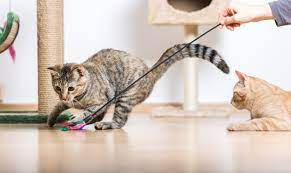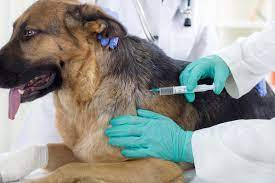Our pets love us and we love them. So, what can we do to try and give your cat, dog or other animal companion a life that keeps them healthy? Besides our love and time, what else can we do?
This article reviews the basics for ensuring your animal companion receives the best general preventative care.
Dental Care

One thing that is often overlooked but is important, is dental care. Bad breath and dental disease occurs in every species with teeth . Just like people, our pets are vulnerable to dental issues ranging from plaque and bad breath to painful tooth root infections.
The need for dental care goes far beyond the importance of treating “bad” teeth that are painful and thus can make pets reluctant to eat or drink. The bacteria involved in the infection can travel through the body, causing problems in other organs.

You can help to prevent dental disease by brushing your pet’s teeth regularly at home with a toothpaste made for pets, not humans, and by making sure your veterinarian checks your pet’s teeth at every appointment. Most pets require yearly dental cleanings and evaluations under anesthesia for such concerns as gingivitis, periodontal disease, or tooth resorption.
Exercise
While exercise helps prevent obesity, preventing weight gain is not the only reason to provide exercise. Dogs and cats need physical activity. Many cats have a strong hunting drive. We can help satisfy their needs by setting aside play time for indoor cats and ensuring younger dogs are taken out to run and play. Exercise helps prevent restless destructive chewing for instance, behavior and aids in sleeping soundly at night and to have social time (particularly dog play dates).
Playing with your pet strengthens your bond with your pet. Just going for a walk with your pup to check out the smells and sights makes your dog’s day, and interactive cat toys will keep your cat’s mind and body sharp.
Regular Checkups
Your pet should have at least an annual checkup with your veterinarian. It’s the equivalent of your annual physical. (Some pets may need more frequent checkups, due to on-going health problems and age-related diseases). Your pet’s doctor will do a physical exam and feel the skin, muscles, bones, etc. for problems; check teeth; and make sure his/her health appears to be good. Finding a potential problem sooner, rather than later, is always in the best interest of your animal companion. (And often, it saves you money over the long run.) The older your pet gets, the more important this preventive care becomes.
Microchip
While the system of scanning for microchips is not perfect, having your pet chipped greatly increases the chance they will be found and returned should they get lost. Tags can fall off collars. Sadly collars and tags are also sometimes removed by people that find your pet. A microchip is there to stay, however. Additionally, in the aftermath of natural disasters or an emergency, microchips can be invaluable.
Nutrition
Your pet needs a balanced diet created for his/her species and for dogs, breed. The price of a pet food doesn’t necessarily equate to the best food for your pet and his health needs. Check the food packaging ensure the food is approved by the Association of American Feed Control Officials (AAFCO) or WSAVA which has an even higher nutrition standard. These two groups test commercially available pet food and tells us if it meets our pets’ nutritional needs or not.
It goes without saying that your animal companion requires access to fresh water every day.
Parasite Control
Internal and external parasites can make your pet (and, in some cases, your family) sick, so using preventatives can keep your pet comfortable and save you a lot of money paying for disease-related issues.
It is essential to control fleas, ticks, tapeworms and other intestinal worms and organisms. Heartworm disease is also imperative. An infestation of fleas can suck so much blood that your pet can become severely anemic. They also can cause allergic skin problems. Ticks can transmit Lyme disease, Rocky Mountain spotted fever, ehrlichiosis, babesiosis and Cytauxzoonosis.
Heartworm disease kills cats and dogs every year; heartworm prevention medication is much less expensive than treatment. And for cats, there isn’t an easy way to detect or treat the disease. Sometimes the first sign of infection is sudden death!
Play and Environmental Enrichment

Like young children, dogs and cats need to play and have fun. The best environment for them is one that stimulates both their minds and their bodies. For cats, that means plenty of scratching posts, cat trees from which they can look outside or hide in, and toys that the cat chases or bats at. Dogs have individual preferences about types of toys: stuffed, hard rubber, balls, ropes, food-dispensing, squeakers, etc. Dogs also enjoy having a space of their own, such as a crate or their own bed. Bored dogs tend to be destructive. Training, exercise, and games help them pass the day without getting into trouble.
Spay or Neuter
Spaying your dog or cat at an appropriate age, which can be determined by your veterinarian, can help prevent numerous health and behavioral concerns. Spayed females have a low to no risk of mammary gland tumors / cancer or pyometra (a life-threatening infection of the uterus) as well as uterine/ovarian cancers. It also costs much less than caring for a litter.Neutering male dogs and cats reduces marking/spraying, aggression, and roaming. Your veterinarian can help you decide on the appropriate age for this procedure.
Weight Management
Obesity can take years of your pet’s life away from you. Some diseases, such as diabetes mellitus in overweight cats, lung problems, heart disease, joint degeneration, pancreatitis gallbladder disease, and liver disease can be prevented by not becoming obese.
Sure, it’s tempting to give leftover ham salad to your pet, but most table scraps simply have too many calories and too many from fat. Giving too many treats to a pet who is overweight is not beneficial. Keeping your pet at an appropriate weight is the healthiest thing. Love can be expressed in other ways besides food.
Vaccinations

Your veterinarian can recommend the vaccination program that is best suited to your geographic area. No matter where you live, puppies and kittens need their initial series of vaccinations, called core vaccines, for diseases such as rabies, feline panleukopenia (distemper), feline viral rhinotracheitis rhinotracheitis, feline calicivirus infection, canine distemper, canine parvovirus, and canine hepatitis.
After those core vaccinations, what your pet needs depends on where you live and what lifestyle you and your pet lead (i.e., do you take your pet on trips, stay in one geographic area, have busy play-dates, rarely leave your yard, etc.).


